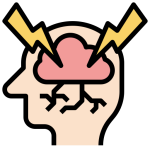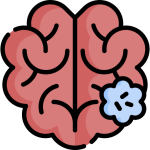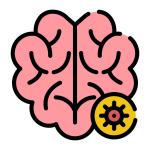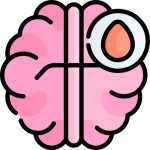Aphasia From Dementia
Over 3 million people are diagnosed with dementia every year. However, most of those people will not develop aphasia. Dementia is a general term that refers to the degeneration of brain tissue. The most common type of dementia is Alzheimer’s Disease. Alzheimer’s Disease does not necessarily cause aphasia, though it can cause some language impairments. People with Alzheimer’s Disease might have trouble coming up with words, forget what they wanted to say, be unable to pay attention to long conversations, or lose their train of thought.
There is a specific type of aphasia that is caused by dementia – Primary Progressive Aphasia (PPA). PPA is the result of brain tissue degenerating, specifically the brain tissue in the language regions of the brain. PPA is most closely associated with Frontotemporal Dementia (FTD). This means that the brain is affected in the frontal and/or temporal lobes – where the language centers are. PPA is a type of aphasia that starts out with mild speech and language impairments. The symptoms get more severe as the dementia progresses.
Even though PPA is a progressive impairment, speech-language pathologists (SLPs) can work with people with PPA. They can identify strategies to make communication easier as the disease progresses. This often includes the use of augmentative and alternative (AAC) communication devices. If someone with PPA learns to use the device before the disease progresses, it is easier to continue using it when symptoms are more severe.
Click on the tiles below to learn more about the most common causes of aphasia.
Stroke

Brain Injury

Brain Tumor

Brain Surgery

Brain Infection

Dementia

Developmental Disabilities

